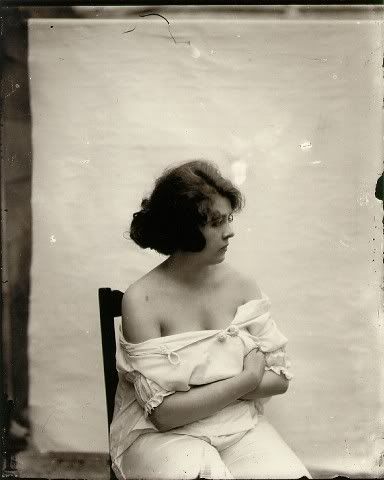He was known retrospectively as an eccentric; not a mean feat in New Orleans where eccentricity flourishes like St, Augustine grass and hibiscus. Ernest Bellocq was known as a commercial photographer in his lifetime. It was only in the 1950s that his secret avocation of portrait photography of the prostitutes of Storyville was discovered by Lee Friedlander.
Storyville was the notorious red-light district in the Tremé faubourg. It was so-named after Alderman Sidney Story, who proposed the ordinance limiting prostitution into this district. Alderman Story was not pleased at the name popularly given this district. That's a shame; most citizens know the names of few of the former mayors and city commissioners but his is remembered.
The district itself had both elaborate parlor houses and flimsy shacks (called cribs). The newly-emerging music form called jazz developed here. It became a haven for all sorts of unsavoriness: it became a tourist attraction.
The harlots accepted Bellocq, and several allowed him to document them and their lives with portraits and candid shots. Here are some examples of Bellocq's work. I have left out nudes, but they can easily be found with a Google search (NSFW). I have a sense that the photographer and the prostitutes were sympathetic with each other, and he respected their dignity.
Storyville was closed down by the Navy Department in 1917.
Unfortunately, E. J. Bellocq was not served well in either books nor movies that used him as a character. Louis Malle's Pretty Baby was especially notorious. Malle's disgusting film (in my opinion) slandered this fine photographer, as well as had a then-twelve-year-old child appear in a nude scene. Don't waste your time with such cinematic dreck.
http://www.huffingtonpost.com/2013/03/26/ej-bellocq-vintage-photos-from-new-orleans-storyville_n_2948713.html

















5 comments:
Very interesting! And the title was wonderful!
He made them look very human. Was Bellocq a Creole?
Belloc was a Creole.
Great photographs. They look sad. I saw some of his nudes by googling them. Some had the faces scratched out.
Those were truly works of art.
Post a Comment